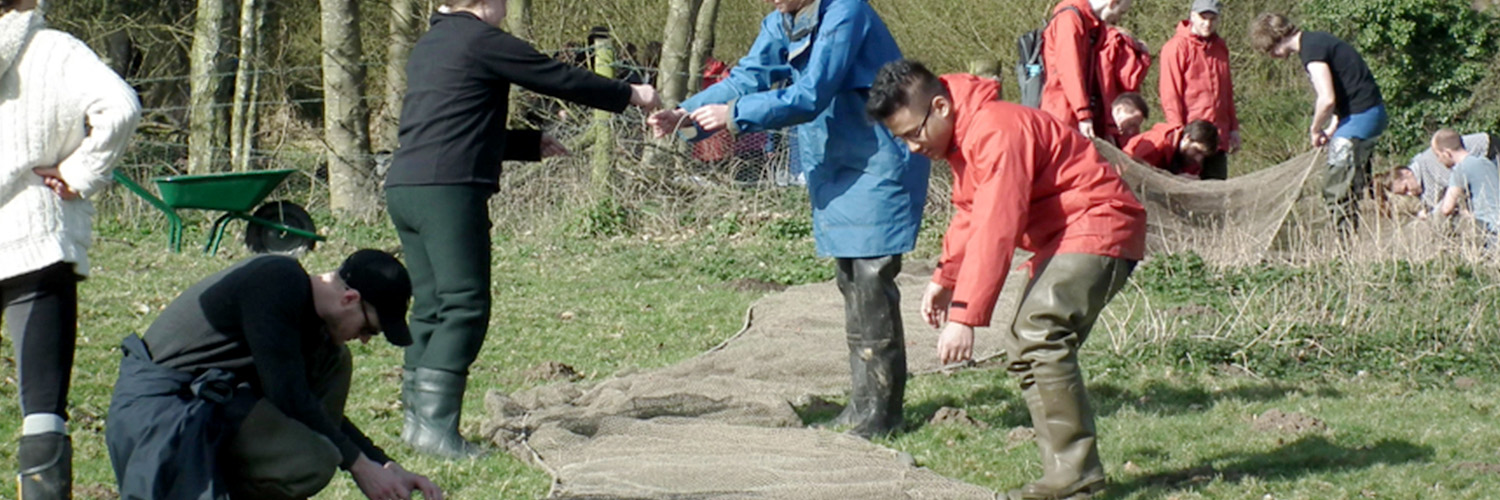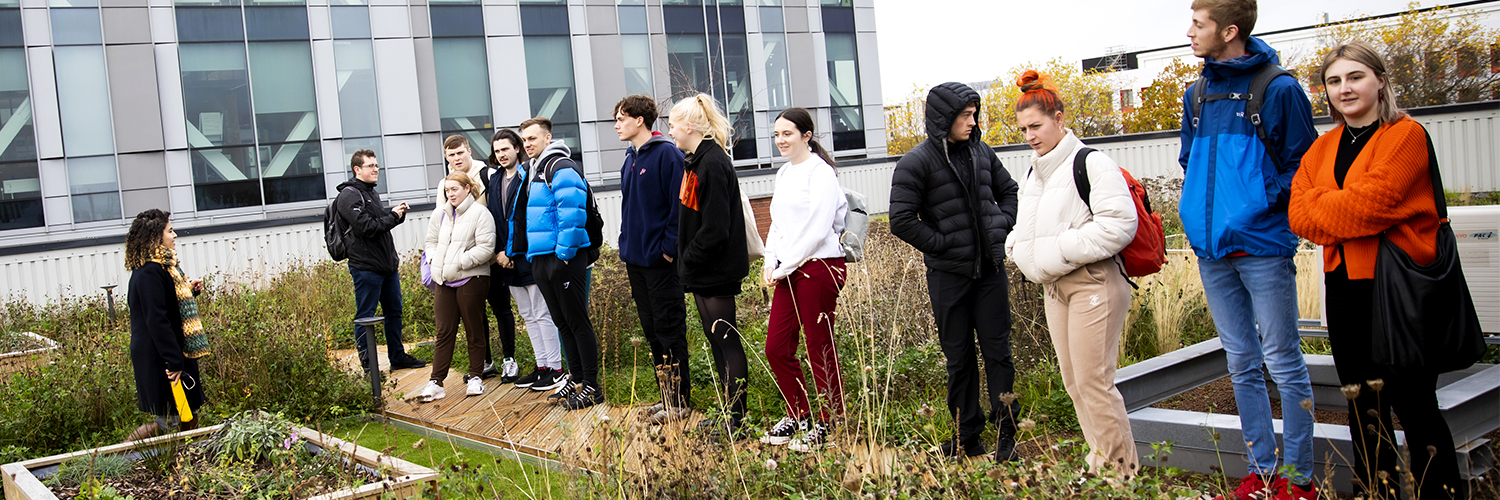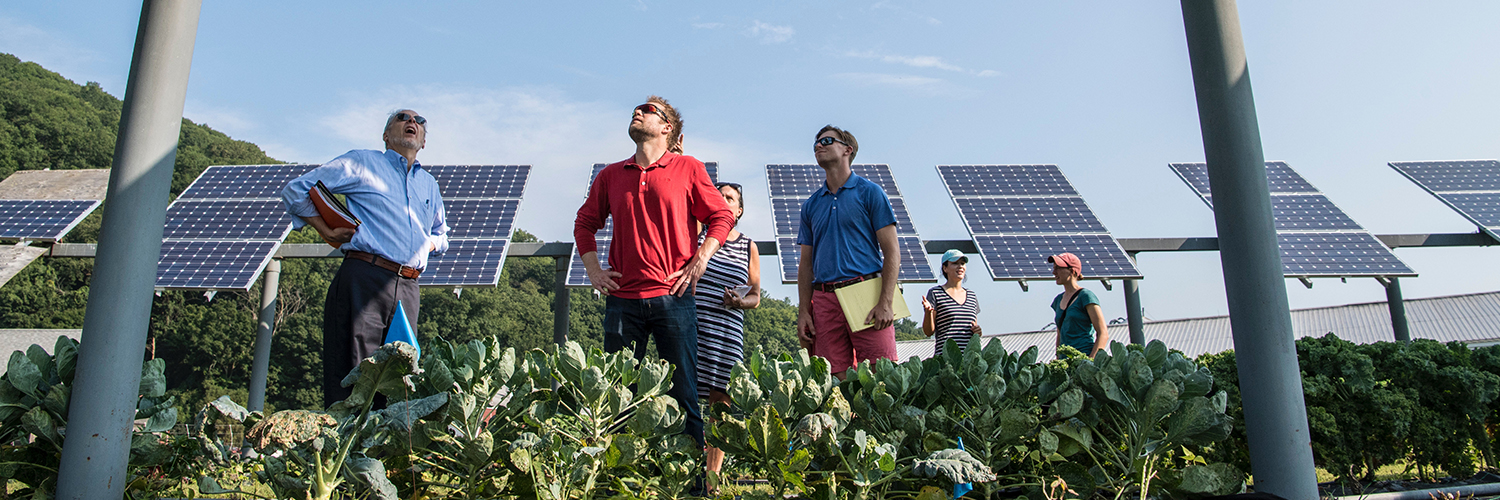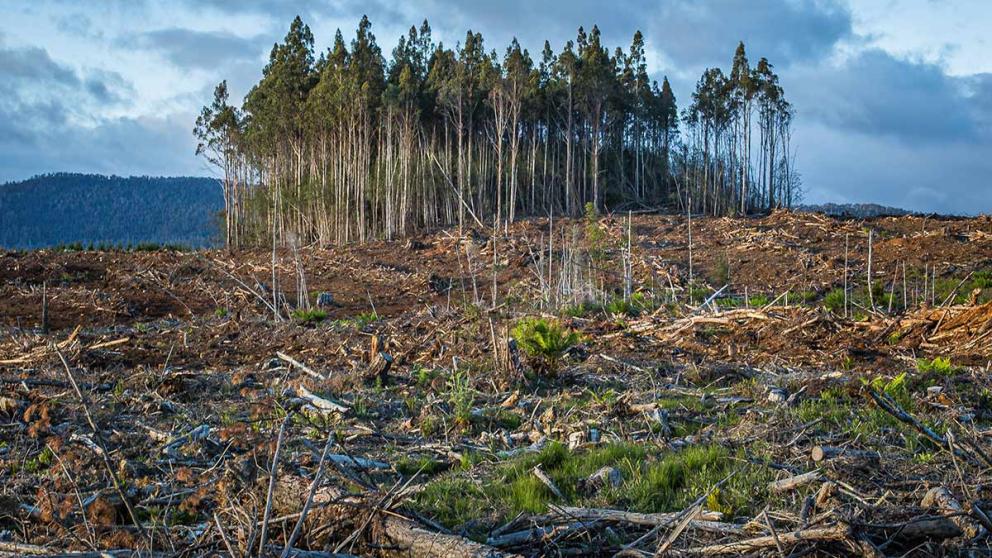
Environmental Geography with Studies in the USA
Full-time
Three year
September 2026
In a nutshell
Now is the time for environmental action. The devastating impact of climate change, highlighted by Greta Thunberg and Sir David Attenborough, reveals the damage societies can knowingly and unknowingly make on our precious natural ecosystems. Gain the skills, knowledge and international insight to see how you can make a difference by studying our exclusive BSc (Hons) Environmental Geography with Studies in the USA degree.
The modern geographer needs a different type of skill set for emerging environment-based roles - so we've built a course to help you prepare. On this exclusive degree course, we've combined the holistic investigative approach of a geographer with the applied skills of an environmental manager. This hybrid curriculum not only helps you to build core geographical investigation skills, you will also acquire the foresight to respond and mitigate climatic and environmental changes.
At the heart of this course is the year you will spend with Toledo University in Ohio, USA - our exchange partner for over 30 years! You will spend Level 5 studying at the University of Toledo in the Department of Geography and Planning. Alongside gathering new friends and a lifetime of memories, you'll be inspired by the Geography and Planning department as you roam the physical and human landscapes of Ohio and surrounding areas.
Salford ranks 8th on People & Planet's University League
People & Planet is the largest student network in the UK campaigning for social and environmental justice. They envision a future in which spiralling inequality, instability, climate crisis and resource depletion are reversed, and a world in which the balance of power in society has fundamentally shifted to an equal world that benefits all of us. University of Salford scored 71.0% and ranked 8th in the University League, with our highest scores in Managing Carbon, Staff and Student Engagement and Education for Sustainable Development.
Want to know more about studying this course from a student's perspective? Hear it straight from the source. Read George's story to learn about his journey throughout studying BSc Environmental Geography with Professional Experience and how it helped him to begin his career.
This programme has been accredited by the Royal Geographical Society (with IBG).
Start your study journey
Register for our next Open Day to learn more about studying environmental geography, explore our facilities and meet the course team
You will:
- Become a next-generation geographer as you build a hybrid skill set grounded in geography, geology and environmental management
- Acquire knowledge from internationally recognised experts working with industry on live environmental projects
- Experience international study by spending a year with our partner University of Toledo in the USA
Course accreditations
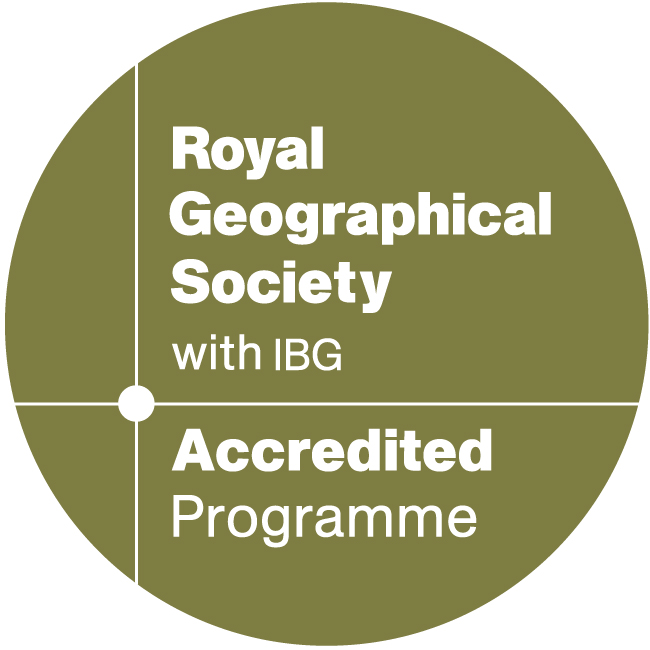
This is for you if...
You're looking for a course that matches your passion for travel and learning more about the world around you
You're looking for a future-focused course that can equip you with the knowledge and skills to help tackle environmental issues
You like the idea of learning in smaller classes, with more direct access to expert academics and industry partners
All about the course
Course delivery
Become a next-generation geographer with our BSc (Hons) Environmental Geography with Studies in the USA. Delivered over three years of study, including a year in the USA, this exclusive course will help you to advance your geography and environmental management knowledge and skills.
Throughout the course you will look at the effects of climate change, earth surface processes, fluvial processes, food security, sustainability and environmental management, all while you develop your applied and practical skills through fieldwork.
Learn more about the course modules in the section below.
Learning experience
A unique aspect of this course is the change of scenery in your second year as you take your studies stateside. You'll join fellow geographers studying at the University of Toledo in the USA. Here, you'll explore conservation, environmental planning and industrial geography, while developing advanced mapping skills using Geographical Information Systems and quantitative methods.
Fieldwork is also key element of this course, and trips are aligned with the specialist modules to develop applied skills and gain practical experience. Residential field trips take place in the UK and the European Alps. Typical day trip destinations include the Peak District, the Yorkshire Dales, and cities such as Sheffield and Liverpool.
Earth Surface Processes
The Earth Surface Processes module explores the landscape in which we live, work and play, and considers the future trajectory of earth surface processes in the light of the Climate Crisis. We evaluate the influence of the properties of rock and soils on the operation of slopes, rivers and the coast, then look at the biogeography of the UK; past, present and future.
The learning environment includes fieldwork (both in-person and virtual) to develop field and analytical skills in soils, geomorphology and palaeoscience) to provide a holistic view of environmental challenges and the tools to tackle their environmental management.
Environmental Resources
Environmental resources such as food, energy, water and minerals are essential to development across the globe, yet the availability of these resources is not equally shared and, in some cases, not unlimited. This makes the variation in the availability of these resources one of the most important issues for society in the twenty-first century.
This module introduces the fundamental topics in environmental resources through a set of historical and contemporary environmental ‘crises’ related to climate change, food security, water availability and pollution and examines some of the global, national and local responses these crises.
Through an active learning process, you will explore the challenges faced by society and participate in site visits, field trips and laboratory work.
People, Place and Space
People, Place and Space is a rich module that introduces students to the human dimension of geography. Lectures will discuss contemporary themes to understand the socio-economic changes and evolution that our society has experienced in this last century. The module will start exploring topics such as urbanisation, industrialisation, globalisation and development, to then look at socio-cultural themes such as gender, identity, ageing, health and sexuality. It will finally conclude investigating the human dimensions of sustainability, disasters and climate change.
While studying this range of topics through the lenses of human geography, students will strengthen their critically skills, learn to meaningfully construct an argument and to discuss confidently about these world issues.
Sustainability and Environment
Environmental resources such as food, energy, water and minerals are essential to development across the globe, yet the availability of these resources is not equally shared, nor is it unlimited. This makes the variation in the availability of these resources arguably one of the most important issues for society in the twenty first century.
This module introduces the fundamental topics in environmental resources through a set of historical and contemporary ‘crisis’ in the environment related to climate change, food security, water availability and pollution and examines some of the global, national and local responses these crises.
Academic Tutorial
The Academic Tutorial module supports your transition to university by developing your academic, personal and professional skills to prepare you for study and work. Lectures will focus on topics such as referencing, academic writing, understanding feedback and career planning. There will also be opportunities to work with your peers in small group tutorials and get involved in volunteering. Your assignments focus on a range of geographical/environmental management issues linked to the other core first year modules. As well as the weekly lectures, you will also attend one-hour tutorials with a member of academic staff from the department, these involve discussion, debate and problem solving, as well as regular monitoring of your personal progress throughout the first year.
Applied Skills and Field Course
The Applied skills and fieldwork module provides lectures and associated practical activities (in trimester 1) to identify and source data, describe, and utilise environmental statistics to develop writing and analytical skills associated with spatial and temporal variations in real world data.
In Trimester 2 lectures investigate the role of qualitative research methods and build background detail before the residential field course takes place. Post field course sessions provide opportunities for feedback, questions and guidance before the final assessment. This module introduces water, glaciers, climate change and a mixed methods approach to both desk and field based activities. You will explore these themes through a combination of lectures, practical computer lab sessions and field work.
You will spend Level 5 studying at the University of Toledo in the Department of Geography and Planning.
Dissertation (40 credits)
Your final year dissertation is an opportunity for you to undertake independent research in an area of interest to you. You will work with one of our academic staff who will guide your research and introduce you to a range of techniques and methods for collecting and analysing data. We offer a range of opportunities to undertake field investigations, work in our high specification laboratories, use cutting edge modelling and mapping software, and to explore areas of human geography through surveys, interviews and focus groups. We will match your research interests to the skills and expertise of our academic supervisors. There are also opportunities to work with professionals from our partner organisations, like the Environment Agency, Northern Roots, and companies such as Kier.
Mitigating Climate Change
In today’s current climate, it is important to understand the underlying scientific principles of how the changing climate has an effect on the natural world, urban environments and society. This module will give you this knowledge, and the confidence to analyse the implications of change on biodiversity, ecosystems and society, whilst identifying the adaptations and mitigation options that are available. You will also learn how to explore the viability of these options and gain the skills to effectively communicate your ideas in formal and informal settings (ranging from social media, through to intellectual debates).
Global Rivers in a Changing Climate
This module explores in detail the concepts and theories that underpin fluvial and glacial systems including hill slope processes, fluvial network development and glacial systems. You will explore the stability and characteristics of fluvial systems in the UK, Europe and in Semi-Arid landscapes. We will undertake international fieldwork, currently in the historic city of Prague, where the Vltava (the longest river in the Czech Republic) has an extensive network of flood protection and river restoration efforts. You will undertake detailed site and desk-based methodological approaches to build your understanding of natural dynamic systems and managed river environments. We conduct 2-D river simulation modelling and iterate the building of sustainable river restoration projects.
Choose one module per trimester from the following:
Development and Global Challenges
Development and Global Challenges explores a range of interesting global phenomena and development issues that affect great part of our planet. Initially the module reflects critically development theories and approaches discussing their relationship with wider phenomena such as colonialism, neoliberalism, globalisation and sustainability.
In the second part, drawing upon cases studies from the global north and south, we will study a range of global challenges such as migration, food security, poverty, inequality, waste and wellbeing. In this module students will become very confident in approaching and discussing issued related to development by using a critical approach the recognises the pros and cons of our human evolution. Furthermore, students will learn to write a podcast script and to disseminate academic knowledge and research to a wider public with diverse tools.
University Wide Language Programme
This module provides the opportunity to learn or develop a language with the University-wide language programme.
Environment and Wellbeing
If ‘wellbeing’ is the ‘ability to appropriately respond to expected and unexpected stresses in order to be happy, healthy and prosperous in work and life’ – it is clear that we must carefully consider the influence of the wider environment. This includes consideration of social and economic factors in addition to those related to pollution, infectious and non-infectious disease, work and climate; these are recognised in the 17 Sustainable Development Goals and are often concerned with health inequalities. This module explores the relationships between human health and the environment through policy, assessment, promotion and intervention – all of which are routed in real-world application.
Environmental Remote Sensing
In this module, you will explore key components and applications of remote sensing for monitoring human impacts on the environment and gain interpersonal skills through contributing to teamwork. The module will use a combination of lectures, seminar discussions, fieldwork, and computer-based practicals. These combination sessions will provide you with experience in using industry-standard image processing software and the skills to carry out the group-based project. The group work will include planning, designing, and conducting remote sensing-related projects to address real environmental issues. The knowledge you will gain from this module to comprehend and analyse remotely sensed data is a highly employable skillset.
Sustainable Cities
Sustainable Cities is a broad module covering a wide variety of topics, allowing you to focus on elements relevant to your specific field of study. This module will engage with a host of ideas and concepts, from radical urban greening, such as rooftops and living walls, to growing food at scale in cities. The module draws on large international research projects and work, exploring innovation in the likes of North America, Africa, Europe and elsewhere. As part of the module, students will undertake international fieldwork, with current trips visiting the likes of Prague to explore complex sustainability issues in a historic cityscape.
We take a flexible approach to our course delivery that promotes diversity and inclusivity and provides a blended learning experience, which will vary to meet specific programme requirements. This learning time includes formal lectures and interactive activities such as seminars, tutorials, practical sessions, laboratory and studio learning. Smaller classes may be used to support collaborative activities such as project and group work and presentations. A range of different assessments and feedback is offered to meet the needs of both our diverse student body and specific subject needs.
Our undergraduate courses are normally made up of 20 credit modules which are equal to 200 hours of learning time. A three-year degree qualification typically comprises a total of 360 credits (120 credits per year).
Please note that exact modules and content offered may vary in order to keep content current and, for courses that offer optional modules, may depend on the number of students selecting particular options. When accepting your offer of a place to study on a programme with optional modules, you should be aware that optional modules may not all run each year. Your tutor will be able to advise you as to the available options on or before the start of the programme. Whilst the University tries to ensure that you can undertake your preferred options, it cannot guarantee this.
Frequently asked questions
Why should I choose a degree with professional experience?
By choosing to undertake professional experience as part of your degree, you will have greater opportunity to put into practice the knowledge and skills you gain in your studies. Experiences are typically taken between the second and third year of the degree. You will spend a fixed term with an organisation, getting involved with the exciting work they do and getting the chance to build on your skills with real-world experience.
What is environmental geography?
Environmental geography is the study of the impact of humans on the natural world and how physical processes impact upon humans.
Why study environmental geography?
Environmental geography prepares students for careers in environmental planning, design, and restoration, as well as in environmental assessment and monitoring, resource management, natural areas preservation, and outdoor and environmental education.
What is the focus of environmental geography?
Environmental geography is all about the environment and our relationship with it. The field might include the analysis of climate patterns, studying the impact of urbanisation on our ecosystems, understanding natural resource management, and investigating the effects of pollution.
How hard is a geography degree?
When studying for your geography degree, you will complete a variety of tasks including essays, research projects and computer-based learning. Managing your time between these tasks, as well as ensuring you get the full university experience, can be challenging. However, with correct time management, you will both succeed at your degree and enjoy your wider university experience. If you find your studies overwhelming, there will be support available from your lecturers and university support staff.
Are the UK tuition fees still funded in the same way as other years of the course?
Yes. Students are able to apply for a fee loan from Student Finance England or their relevant funding body (e.g. Student Finance Wales). In addition to the fee loan, you can also receive any maintenance loan as normal. All students can apply for additional funding, mainly a Turing grant – this funding is a grant and not a loan, so will not be additional debt. The grant is around £3,800 – there is an uplift to around £5,200 for students from low income households and is paid as 80% upfront and then 20% at the end of the study period.
What was the tuition fee for year 2 this year for students in Toledo?
Students studying in Toledo in year 2 pay a reduced fee.. This is currently £1385. Salford students receive a fee waiver from the University of Toledo, so there are no fees payable direct to them. For some units of study at the University of Toledo there are some costs associated with learning materials and access to software and labs – these fees are a few hundred US dollars and will vary across the units of study.
School of Science, Engineering and Environment
Rising to the challenge of a changing world, our degree courses are designed to shape the next generation of urbanists, scientists, engineers, consultants and leaders.
Driven by industry, and delivered by supportive programme teams, you can develop the knowledge and skills to become unstoppable in your career.
Facilities
As an environmental geography student, you will have access to our state-of-the-art, integrated teaching laboratory known as the Bodmer Lab. The Bodmer Lab is a specialist, purpose-built facility and ensures our students benefit from the latest technologies to support their learning and remain on the cutting edge of innovation and discovery.
UNIVERSITY OF TOLEDO
At the heart of this course is a year overseas with our partner institution the University of Toledo in Ohio (USA), based an hour from Detroit.
Spend your second year building knowledge, roaming new landscapes, gaining an international perspective - and enjoying the USA study experience.
Industry collaboration and research
When you start this degree with Salford, you are also joining a community making a difference in industry, our local region and in our wider society.
Many of our academics and technicians who support your course are also part of a collective delivering collaborative, interdisciplinary, high-impact work in a range of local and global environmental issues and challenges.
Read on and discover how you are part of something bigger.
What about after uni?
Employment
There is growing demand for professionals with environment-focused skills. A wide range of organisations need skilled professional to help them to comply with legislation and conform to standards. Many environment-focused not-for-profit organisations are also increasing the range of roles to help tackle the impact of climate change.
Environmental consultancies, local authorities, utility companies (such as water, electricity and gas), and organisations within the voluntary sector are all concerned with the protection of the environment. Such organisations employ professionals to set up and manage their environmental management systems in order to comply with legislation and to conform to national and international standards.
Salford geography graduates have progressed to work in environmental consultancies, utility companies, transport logistics, housing organisations, and have pursued careers in primary and secondary teaching. Others have used the degree as a platform to study geography and environment-focused PhD research degrees.
Further study
You might find you want to learn more about the environment through further study. Building on our subject expertise, we offer a range of focused postgraduate courses where you can gain specialist knowledge. Salford graduates and alumni also receive a generous fees discount.
- MSc Environmental Assessment and Management
- MSc Health and Global Environment
- MSc Safety, Health and Environment
- MSc Sustainability
Career Links
Building on the University's strong connections to industry, the geography and environment department has developed unique links that benefit our students. Examples include:
- Environmental consultancies, including Atkins, WSP and AECOM
- Government bodies, such as The Environment Agency, DEFRA and local authorities
- Charities, such as Northern Roots, the largest urban farm and eco-park in the country
- In-house physical and environmental consultancies based within the University's Centre for Applied Archaeology
- Prominent built environment organisations, such as Peel Land and Property
What you need to know
Applicant profile
We welcome applications from students who may not meet the stated entry criteria, but who can demonstrate their ability to study the course successfully. You will be interested in the broad fields of geography and environmental management, with passion for sustainability, climate change and related areas. You will be adventurous too, embracing the opportunity to spend a year studying in the USA.
English language requirements
If you are an international student and not from a majority English speaking country, you will need an IELTS score of 6.0 with no element below 5.5. We also accept a range of other English language qualifications. If you do not have the English language requirements, you could take the Pre-Sessional English course to gain entry onto this degree.
GCSE
In addition to Level 3 requirements, you must have evidence of Level 2 GCSE English and Maths at Grade C/4 or above.
UCAS tariff points
104 -112 UCAS points.
A level
104 - 112 UCAS Tariff Points. Geography Preferred but not essential. Two full A-levels required as a minimum.
BTEC Level 3 National Extended Diploma
DMM.
T Level
Overall grade M. Any subject accepted. Must have passed all components.
Access to HE
104 - 112 UCAS Tariff Points.
Scottish Highers
104 - 112 UCAS Tariff Points.
Irish Leaving Certificate
104 - 112 UCAS Tariff Points.
International Baccalaureate
30 points.
Salford Alternative Entry Scheme (SAES)
We welcome applications from students who may not meet the stated entry criteria but who can demonstrate their ability to pursue the course successfully. Once we have received your application we will assess it and recommend it for SAES if you are an eligible candidate.
There are two different routes through the Salford Alternative Entry Scheme and applicants will be directed to the one appropriate for their course. Assessment will either be through a review of prior learning or through a formal test.
How much?
| Type of study | Year | Fees |
|---|---|---|
| Full-time home | 2026/27 | £9,790 per year |
| Full-time international | 2026/27 | £18,120 per year |
Tuition fees will increase in the second and each subsequent year of your course by the rate of inflation, subject to the maximum fee limits set out by the UK Government.
Additional costs
You should consider further costs which may include books, stationery, printing, binding and general subsistence on trips and visits.
Year in the USA
The major additional costs (as of October 2025) for the year in Toledo are as follows:
- Flights – in recent years the cost for a return flight has been approximately £1,200-£1,800.
- Visa – currently $185 for the period you will study; in addition all applicants must attend a visa interview in London, so will need to cover the travel costs incurred.
- Health insurance – this will vary from one individual to another, but it will cost approx. $2,000 if obtained in the USA, paid through your University of Toledo account. There are also options to purchase a plan from the UK prior to departure.
- Living costs - approximately $10,000-$12,000 for 9 months.
- Students pay only a reduced tuition fee to Salford while undertaking their studies in the USA and all tuition fees to the University of Toledo are waived. However students will have to pay approximately $200 per semester to cover various on-campus services.
Most students are able to claim back a reasonable proportion of the above costs from Student Finance England as a grant: “You must pay the first £303 of your travel costs - and your travel grant will be reduced by £1 for each £8.73 of household income over £39,796.” See https://www.gov.uk/travel-grants-students-england/what-youll-get for more information.
All registered Salford students are eligible to apply for funding under the Turing scheme, which is a UK government programme providing funding for International Opportunities. For more information on the Turing Scheme, please contact Salford-IOT@salford.ac.uk.
Field Trips
All field trips are funded by the school but you may need to consider additional costs such as food and spending money.
International field trips that are part of core modules are also funded by the school but you will need to pay towards international field trips that are part of optional modules (although these are subsidised by the school) and you will be made aware of these costs before selecting the module.
All Set? Let's Apply?
Enrolment dates
Student information
Terms and conditionsUCAS information
Course ID F812
Institution S03


